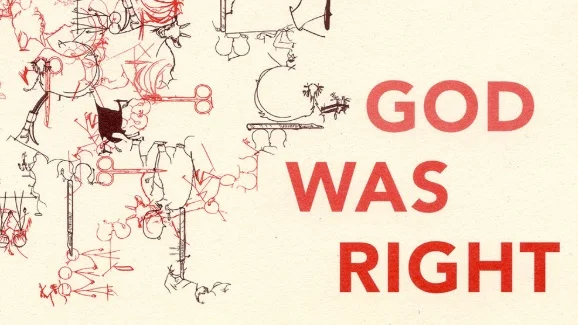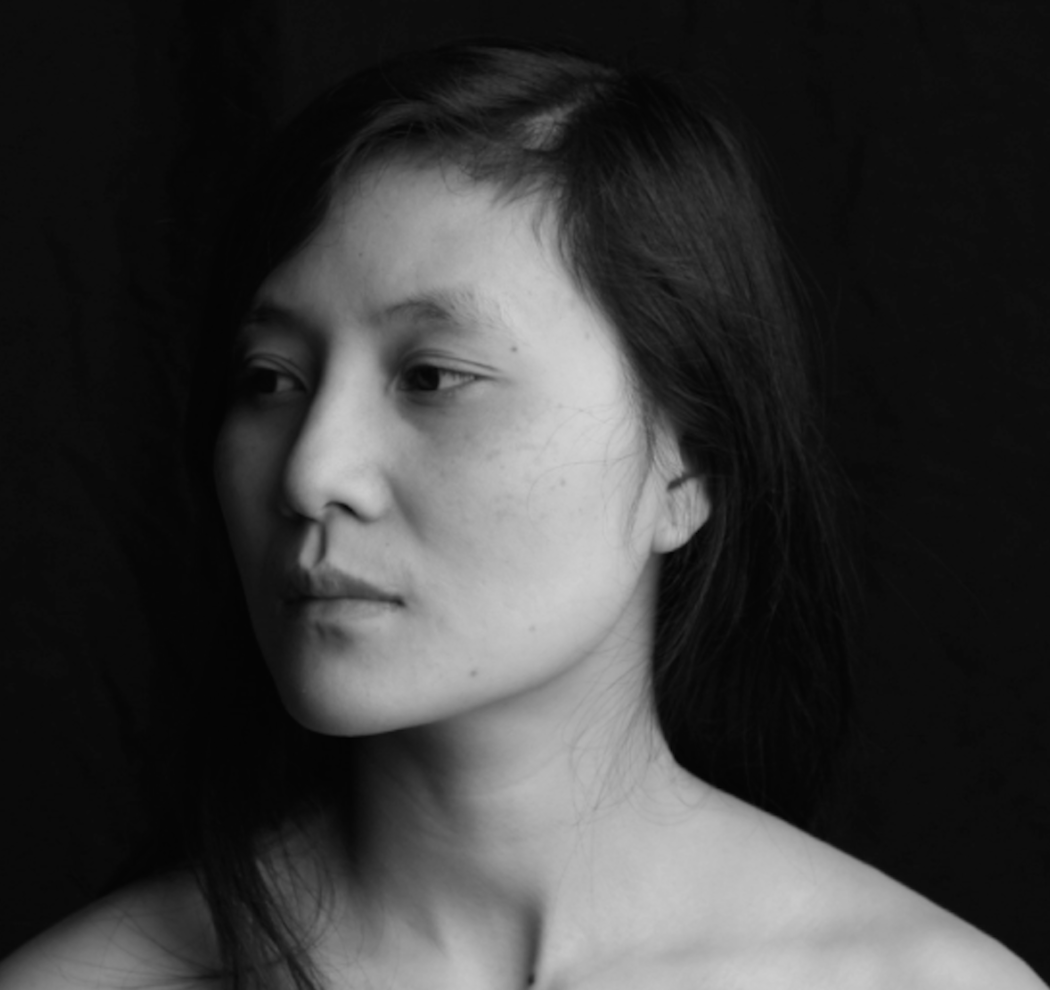Joanna C. Valente is an alien from Saturn’s rings. They have written, illustrated, and edited a few books. Sometimes they take photos and bake ugly desserts.
Vi Khi Nao Reviews Diana Hamilton's God Was Right
WAS DIANA HAMILTON RIGHT ABOUT GOD WAS RIGHT?
God Was Right (Ugly Duckling Press, Nov, 2018) reviewed by VI KHI NAO
How do I begin a review with the assumption that
my readers have read the collection already? How to
write a purposeless review…
By doing it this way:
I think God Was Wrong, but Diana Hamilton might be right
in that the absence of a cat may have shaped the title of this collection.
Rhetorical questions are not bound by the rules of wit. T
hey, they are governed by the law of absence.
To make something present by denying it. G
od is not here with us to prove if God was right.
So please take advantage of the situation.
But Hamilton is right here and it seems like we should listen to her.
Is this what Hamilton hopes to achieve with this narratively charged body of poetics? Surely not.
What language shapes the constitution and ontological fabric of her consciousness and super-subconsciousness such that the title of her collection is bold and ambitious and comedic and quietly enigmatic, reflecting and revealing the elaborate emotional, philosophical sector of its content? Well, don’t answer that. The question is too much.
The answer is the language of falling in love with friends, how cats are not designed to make us suffer (though if they die, they will), acceptance and obesity, rape jokes are okay, it’s hard to pay rent, sleeping with landlords is important for survival, yay to Bakhtin and fictional poetry, men have the potential to misunderstand (gynecological) yeast infections, buying inexpensive earrings and feeling fiscally self-conscious about their lack of social and fiscal value should be condoned frequently, there is no right way to superglue an ear to an animal. You just need to do it. Especially if you are an animal lover. So it can listen to something better.
I emphasized or clarified “gynecological” because for a while I thought “yeast infection” was a baking condition where bread had a phallic problem and had a hard time rising.
This answer makes no good argument for Madame Bovary.
Readers of Hamilton’s work do not necessarily require a large appetite for the long form, they just need some literary cows and a decent philosophy on bad writing and Hamilton is more than willing to assist with the misguidances, misalignments.
Hamilton excels in the long form.
This is an understatement, as demonstrated by her eloquent, aesthetically streamlined, compelling chapbook Universe, published three years ago, also by Ugly Duckling Presse. Useful to couple her chapbook with this collection.
I read her chapbook in one afternoon in South Bend, IN and now her full-length in Iowa City, IA over a cloudburst of a month.
No matter where on earth you read Diana Hamilton’s work, there are two certainties: God Was Right and God Was Wrong.
Since God Was Wrong hasn’t been written or published (I even tried to find such a title on Amazon, but all I found was I Was Wrong (touché, God, touché), as if platonic marriages are even legal,
you have a higher chance of enjoying your non non-existent reading experience more if you read Hamilton’s God Was Right first.
Hamilton’s essayistic poetry operates, yes, on a language level, but perhaps her work here is better described as rejuvenated logic made sense of by intellectualized senselessness and emotional intelligence. Choose one but not both. In other words, to suffer (for the sake of animality, yeast infections, existence, the death of a beloved cat, feminist soundbites in an era of misunderstanding and defensiveness, epistolary devotion, Sapphic detours, cat hugs or kisses), one must dominate hangovers and heartbreaks of form and transform them into “six months of incredible sexual pain” along the river of an imaginary epistolary kingdom.
If thoughts were parentheses, then Hamilton’s God Was Right is full of them.
Diana Hamilton’s intelligent and poetic essays operate like a Russian Doll, or rather a closet inside of a closet inside of another closet when she is already outside of the closet (literally and figuratively). To open the bedroom doors of her intelligence, you must open every floor inside of a 60+ story building where the elevator only works right when you are going down. You climb the stairs into her well-maintained, but somewhat combed, sentences until you run out of breath and then you do it all over again. There are eleven of these in this collection! You can and probably should start with her “Autobiography of Fatness” and then maybe skip floors. Or start with her “Essay on Bad Writing” which she read at a reading in Iowa City. It’s deliriously awesome and funny, which is to say: because of Diana Hamilton, essays don’t have to be tedious, too academic, full of prose blocks, and boring anymore. Avoid reading the last poetic essay with identical title “God Was Right” first. You may be forced to see why God Wasn’t Right for the right reasons. You are not ready for something Easy. Weed through the Hard stuff first because Easy is actually Hard.
More notes for a potentially well-written review of God Was Right:
God Was Right is a visual philosophical treatise on E.E. Cummings’s “Since Feeling Is First”…. "for life's not a paragraph/and death i think is no parenthesis"
God Was Right or How To Marry Your Platonic Friends in Poly-culture Where Women Are Allowed To Write Bad Poetry And Have The Courage To Encourage Men To Write Bad Poetry Too.
Some semi-remarkable lines from her book that I love. I say “semi” not because they are not brilliant. They are brilliant when they stroll in the right neighborhood of context. Context is content here, folks. In context, these lines are obesely beautiful:
p.31 : “They’re too well written to seem seriously engaged in risking the self.”
p.85 : “I want to love a man without holding his heterosexuality against him.”
p.85 : “God was right when he made us/ want to marry each other”
Advice on how to read the rightness of God:
Treat it more like a toy or a wedding ring than a book.
Play around with it. Touch it. Don’t smell it. It’s not a dog and it can’t bark.
Treat it like a cat that will not stare at you especially when you are naked and reading it while self-conscious.
Oh, libraries of cats.
In preservation of books.
VI KHI NAO is the author of Sheep Machine (Black Sun Lit, 2018) and Umbilical Hospital (Press 1913, 2017), and of the short stories collection, A Brief Alphabet of Torture, which won FC2’s Ronald Sukenick Innovative Fiction Prize in 2016, the novel, Fish in Exile (Coffee House Press, 2016), and the poetry collection, The Old Philosopher, which won the Nightboat Books Prize for Poetry in 2014. Her work includes poetry, fiction, film and cross-genre collaboration. Her stories, poems, and drawings have appeared in NOON, Ploughshares, Black Warrior Review and BOMB, among others. She holds an MFA in fiction from Brown University.
DIANA HAMILTON is the author of three books—God Was Right (Ugly Duckling Presse), The Awful Truth(Golias Books), and Okay, Okay(Truck Books)—and four chapbooks, including Universe (UDP). She writes poetry, fiction, and criticism about style, crying, shit, kisses, dreams, fainting, writing, and re-reading. You can walk through audio recordings of her dreams in the first-person shooter by Alejandro Miguel Justino Crawford in Diana Hamilton's Dreams (Gauss PDF). Her poetry and critical writing have appeared (or are forthcoming) in BOMB, Lambda Literary, and Social Text Journal among others. She received her PhD in Comparative Literature from Cornell University, and she currently works as the Director of Baruch College’s Writing Center.
Charlotte Seley’s 'The World is My Rival' Will Break Your Heart & Mend It All At Once
Kailey Tedesco's books She Used to be on a Milk Carton (April Gloaming Publications) and These Ghosts of Mine, Siamese (Dancing Girl Press) are both forthcoming. She is the editor-in-chief of a Rag Queen Periodical and a performing member of the NYC Poetry Brothel. Her work has been nominated for the Pushcart Prize. You can find her poetry featured or forthcoming in Prelude, Prick of the Spindle, Bellevue Literary Review, Vanilla Sex Magazine, and more. For more information, please visit kaileytedesco.com.
4 Books That Focus on Identity & Survival
Joanna C. Valente is a human who lives in Brooklyn, New York, and is the author of Sirs & Madams (Aldrich Press, 2014), The Gods Are Dead (Deadly Chaps Press, 2015), Xenos (Agape Editions, 2016), and Marys of the Sea (The Operating System, 2017). They are the editor of A Shadow Map: An Anthology by Survivors of Sexual Assault (CCM, 2017). Joanna received a MFA in writing at Sarah Lawrence College, and is also the founder of Yes, Poetry, a managing editor for Luna Luna Magazine and CCM, as well as an instructor at Brooklyn Poets. Some of their writing has appeared in Brooklyn Magazine, Prelude, Apogee, Spork, The Feminist Wire, BUST, and elsewhere.
What Does a Fictional Witch Look Like in 2016?
When it comes to fiction about witchcraft, the canon is limited. That much is obvious.
Read MoreA Review of Puma Perl’s 'Retrograde'
Puma is New York City. Puma is why New York City is cool. I read her full-length collection Retrograde (great weather for media, 2014) on the subway, while listening to The Cure, walking around LES, and wandering at Coney Island. In many ways, the collection is best read while traveling, as so much of it concerns human movement, both physical and emotional.
Read MoreNY Theatre Guide
Ivo Van Hove’s 'The Crucible' Blew Me Away
This May Day was completely sans May, and instead a drearily beautiful pastiche of early autumn. The rain-splashed winds in conjunction with the rush of traffic in Times Square made my bell-sleeve floral dress sway gently against my thighs, and I clasped my jacket close to me, smiling through the mist. Sometimes life does imitate art, but I had no idea how fully this chilly Sunday would complement Ivo Van Hove’s rendition of Arthur Miller’s "The Crucible," now on Broadway at the Walter Kerr Theatre.
Read More





































